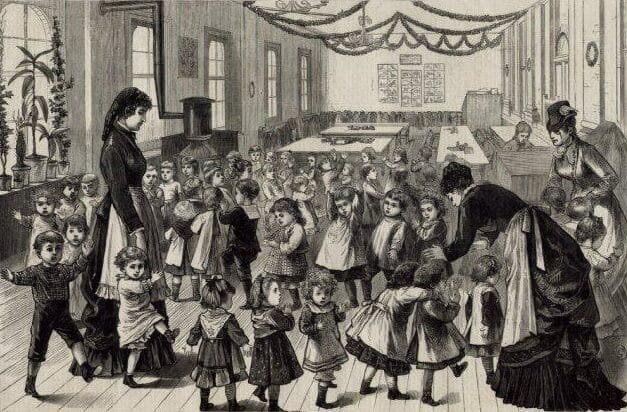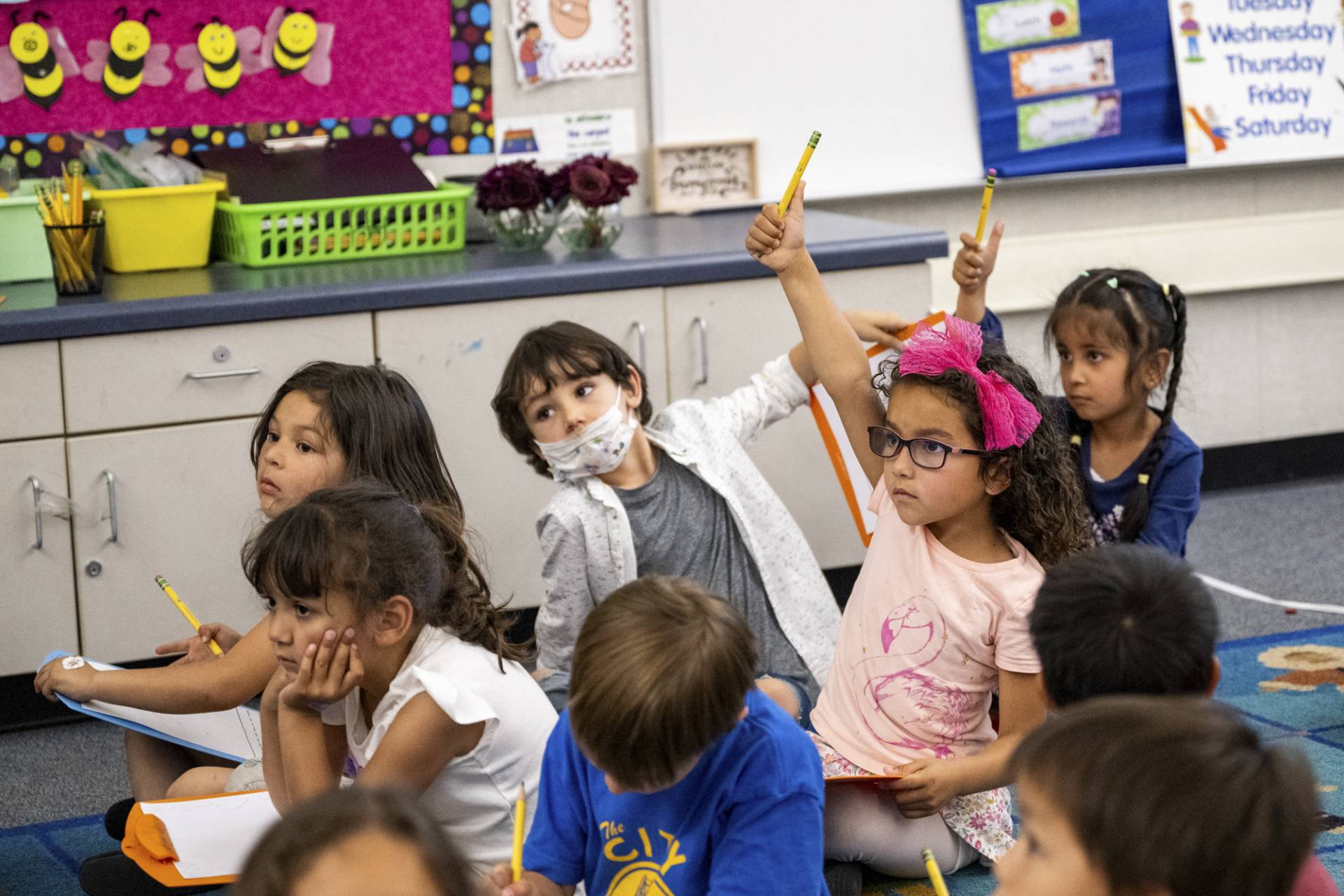Creative outdoor science experiments for Grade School students
Wiki Article
The Value of Interactive Tasks in Grade School Education
Interactive activities play an important duty in elementary school education and learning. They engage pupils and improve finding out end results. Through team projects and hands-on experiments, pupils experience the product in a sensible way. This method satisfies diverse discovering styles and promotes important abilities. Nevertheless, the advantages extend beyond academics. Exploring the deeper influence of these tasks discloses their importance in forming young students' futures. What makeovers take place when pupils proactively participate?Enhancing Engagement Via Interactive Understanding
Although conventional training approaches have their merits, interactive understanding substantially enhances trainee interaction in elementary school education. This technique motivates active involvement, enabling pupils to submerse themselves in the knowing process. By using group tasks, hands-on experiments, and technology-driven sources, teachers produce an atmosphere where pupils feel much more connected to the material.Interactive learning helps with partnership among peers, promoting communication skills and team effort. It likewise satisfies diverse discovering styles, making certain that aesthetic, acoustic, and kinesthetic learners can all thrive. Furthermore, students are much more likely to maintain information when they proactively participate, instead of passively getting understanding.
This dynamic approach not just makes discovering enjoyable yet additionally infuses a sense of ownership in pupils concerning their instructional trip. As they involve with the web content, their curiosity and inspiration to discover rise, laying a solid structure for future scholastic success.
Establishing Important Believing Skills
Interactive learning not just improves engagement but additionally functions as a stimulant for establishing crucial thinking skills in quality school pupils. Through tasks such as problem-based knowing, discussions, and hands-on experiments, pupils are motivated to assess information, assess various point of views, and create reasoned verdicts. These interactive experiences call for trainees to doubt assumptions, leading them to think even more deeply concerning different topics.
Interactive tasks typically present real-world scenarios that test students to apply their knowledge artistically. By steering with these obstacles, they discover to identify pertinent details and make informed choices. This process cultivates not only specific vital thinking yet also motivates students to express their believed processes, enhancing their capacity to interact properly. Because of this, interactive discovering environments grow a generation of critical thinkers who are better prepared to take on complex problems in their future academic and professional endeavors.
Fostering Cooperation Among Peers
Cultivating partnership amongst peers is crucial in quality college education, as it improves teamwork and communication abilities. Participating in team activities aids students construct count on and regard for each other, laying the foundation for reliable partnership. Furthermore, analytic together allows trainees to gain from each other and establish a collective method to challenges.Teamwork and Interaction Abilities
Reliable team effort and interaction abilities are necessary components of an effective elementary school education and learning. Participating in interactive tasks motivates students to collaborate, share ideas, and address problems with each other. Such experiences advertise the growth of important interaction abilities, enabling children to express their ideas plainly and pay attention actively to others. Via teamwork, trainees discover to appreciate diverse viewpoints, fostering a feeling of neighborhood and shared obligation. Structured group jobs, whether in academics or imaginative projects, boost peer communications, instructing youngsters exactly how to bargain duties and solve problems. These skills not just contribute to a favorable classroom setting but additionally prepare students for future collaborative undertakings in higher education and learning and the workplace. Overall, teamwork and interaction are fundamental to alternative advancement in quality institution.Building Count On and Respect
Building count on and respect amongst peers acts as a keystone for effective partnership in elementary school atmospheres. They are more most likely to involve proactively in group tasks when trainees really feel valued and valued by their schoolmates. Interactive activities, such as group projects and participating games, provide opportunities for pupils to gain from one another, cultivating a sense of neighborhood. This environment urges open interaction, allowing pupils to express their concepts and viewpoints without worry of judgment. As depend on constructs, students become extra going to share duties and support each various other's discovering. Eventually, growing an atmosphere of trust and respect improves not only scholastic end results but additionally social growth, outfitting pupils with vital social skills for their future ventures.Problem-Solving With each other
Joint analytic involves trainees in vital reasoning and teamwork, important abilities for their academic and personal development. When students function with each other to tackle difficulties, they discover to interact efficiently, respect diverse viewpoints, and utilize each various other's staminas. This process improves their capacity to assess problems from numerous angles and develop imaginative remedies. Group tasks, such as scientific research experiments or mathematics difficulties, advertise energetic involvement and foster a sense of community. As trainees team up, they also construct social abilities, discovering to bargain and jeopardize, which are crucial for future communications. Grade School Inevitably, analytical together grows a supportive knowing setting, encouraging trainees to take possession of their education and learning while preparing them for joint endeavors beyond the class.Motivating Creativity and Innovation
Motivating creative thinking and advancement in elementary school education and learning can be significantly enhanced via hands-on learning experiences. These activities allow students to engage directly with materials and concepts, cultivating creative thinking. Additionally, collective group jobs can boost varied concepts and solutions, even more supporting a creative setting.Hands-On Learning Experiences
A wide variety of hands-on understanding experiences substantially boosts creativity and advancement in grade institution education and learning. Engaging students in sensible tasks permits them to use theoretical understanding in real-world contexts, fostering much deeper understanding. By adjusting devices and products, kids create vital analytical skills and discover to assume outside the box. These experiences inspire curiosity and motivate trainees to explore their passions additionally. In addition, hands-on activities can link numerous topics, linking science, art, and math in meaningful means. This interdisciplinary strategy urges students to see connections and assume artistically. Ultimately, hands-on knowing experiences support a generation of innovators, furnishing them with the skills and confidence required to deal with future obstacles and add to culture in distinct methods.Collaborative Group Projects
Hands-on discovering experiences normally bring about the consolidation of joint team tasks, which play a crucial role in fostering creativity and advancement in elementary school education. These projects urge trainees to interact, sharing ideas and viewpoints, which enhances analytic abilities and essential thinking. With collaboration, trainees find out to connect efficiently and regard varied perspectives, necessary abilities for their future. Additionally, team tasks offer chances for trainees to explore various duties, increasing their versatility and confidence. Taking part in this cooperative environment enables them to explore their creative thinking, pushing the limits of conventional knowing. Ultimately, collaborative group projects not only improve the educational experience yet likewise prepare trainees for real-world difficulties that require teamwork and innovative thinking.Structure Confidence and Self-reliance
As pupils engage in interactive tasks, they often discover opportunities to develop self-confidence and self-reliance. These tasks, whether they involve hands-on jobs, role-playing, or analytical jobs, urge trainees to take initiative and share their ideas freely. By getting involved in such experiences, students learn to trust their capabilities and make choices without depending solely on assistance from instructors or peers.Interactive activities cultivate a feeling of ownership over knowing. They develop vital assuming skills and resilience when pupils deal with obstacles collaboratively or individually. This process not just enhances their understanding of the subject yet additionally equips them to take risks in their knowing trip.
As they browse numerous interactive circumstances, pupils slowly lost their insecurity, paving the means for increased self-confidence - Kindergarten. Inevitably, these tasks play an important function in supporting positive and independent students, outfitted to deal with future academic and personal obstacles
Creating a Favorable Class Environment
While fostering a positive class atmosphere is crucial for efficient learning, it calls for intentional initiative from instructors to develop an area where pupils really feel safe, respected, and engaged. A positive environment encourages partnership, permitting pupils to share themselves without anxiety of judgment.Educators can attain this by developing clear expectations, advertising common respect, and acknowledging individual payments. Integrating interactive activities further enhances involvement, making discovering more vibrant and satisfying.
Furthermore, a nurturing atmosphere supports social-emotional growth, as pupils discover to browse connections and solve problems. Teachers play an essential function in modeling favorable behavior and enhancing a culture of compassion and inclusivity.
Often Asked Questions

Exactly How Can Moms And Dads Assistance Interactive Knowing in the house?
Parents can sustain interactive understanding in your home by providing interesting products, motivating hands-on jobs, integrating academic video games, promoting conversations, and developing a nurturing environment that promotes interest and expedition in their youngsters's learning experiences. (Kindergarten)What Kinds Of Interactive Tasks Are A Lot Of Effective?
Hands-on jobs, collaborative video games, role-playing circumstances, and educational innovation applications are amongst one of the most efficient interactive tasks. These involve pupils, improve vital assuming abilities, and promote synergy, ultimately cultivating a deeper understanding of various subjects.Exactly How Do Interactive Tasks Provide to Different Learning Styles?
Interactive tasks engage visual, auditory, and kinesthetic students by including diverse techniques. These tasks promote recognizing via hands-on experiences, collective conversations, and aesthetic aids, permitting trainees to soak up information according to their preferred discovering design.What Are the Expenses Related To Executing Interactive Activities?

Executing interactive activities sustains prices such as products, training for instructors, innovation upgrades, and prospective facility adjustments. Budget plan restraints can likewise influence the regularity and selection of tasks used to students in educational settings.
How Can Educators Examine the Influence of Interactive Knowing?
Teachers can assess the impact of interactive learning with monitorings, trainee comments, performance metrics, and comparative evaluation of test scores prior to and after execution, making certain an extensive understanding of engagement and understanding retention enhancements.Via activities such as problem-based learning, disputes, and hands-on experiments, students are encouraged to assess details, examine different perspectives, and formulate reasoned verdicts. Interactive activities frequently present real-world situations that challenge pupils to use their understanding artistically. Involving in interactive activities urges trainees to collaborate, share ideas, and address issues together. Interactive tasks, such as team projects and participating games, supply chances for trainees to discover from one another, promoting a feeling of area. As students engage in interactive tasks, they usually find possibilities to develop self-confidence and freedom.
Report this wiki page